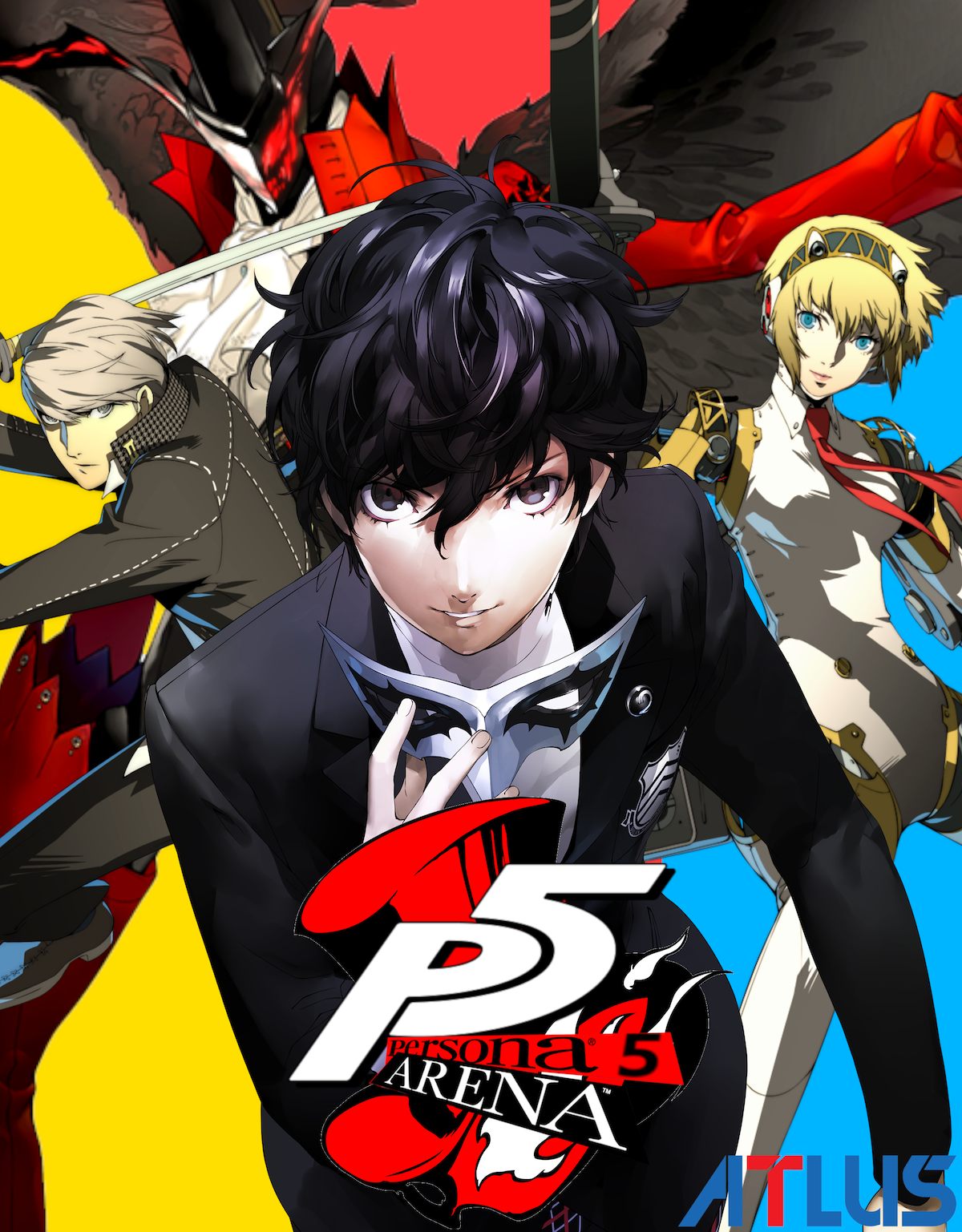The original Persona 5 was released in April 2017 for the Playstation 3 and 4, during one of the most tense moments of the contemporary American culture wars. A few months prior, Donald Trump was elected president, and a few months later, a bunch of white supremacists marched through Charlottesville shouting, “Jews will not replace us.” For perhaps the first time since its inception, a tremendous ideological rift opened in the internet, separating it into two similarly contemptible—and contemptuous—social spheres: scary message boards dominated by fledgling fascists and, well, Twitter, which was and will always be dominated by the indestructible ouroboros of moralizing, hand-wringing liberals. You were better off just deleting social media and playing video games.
In this midst of all this, we got Persona 5, and I realize this already sounds hyperbolic, like it was Woodstock or something. I should be honest about the fact that Persona 5 is a game about bartering with demons and its deuteragonist is a talking cat. The series’ big selling point is that it allows you—the nameable protagonist—to date any of the female leads. You are in high school. Like plenty of other games, it is overflowing with regressive motifs and is primarily geared toward precocious children and emotionally stunted, frighteningly horny adults.
Still, it was the first time that a video game seemed to accurately reflect the American social and political zeitgeist, which is rare within the frustratingly mealy-mouthed medium. The studio behind the game’s development even admitted that one of Persona 5’s main antagonists—a bloviating, populist political candidate with a heart of dog shit—was inspired by Trump.
The main character—whose code name is Joker, and who is a semi-recent addition to the Super Smash Bros. Ultimate roster—is sent to board in Tokyo with a surly cafe owner after he punches the aforementioned politician in the face for assaulting a woman on the street. Under duress, the woman testifies against Joker, framing his righteous anger as random abuse.
Everyone in Tokyo whispers behind Joker’s back and assumes he is an asshole because of his criminal record, which is funny, because he’s a lanky and modish, unassuming dude with Buddy Holly glasses. He forms a picaresque gang of “gentlemen thieves” with some other social outcasts he meets at school called the Phantom Thieves and—thanks to some inexplicable video game black magic—discovers a way to rehabilitate bad people by infiltrating their psyches and “stealing their hearts.”
There is something really empowering about blasting through Persona 5—it’s a game about taking matters into your own hands, it frequently reminds you that you can’t depend on politicians or the police to deliver justice, and it depicts adulthood as, essentially, a massive farce. Its antagonists aren’t Marvel villains and their evil intentions are clearly demarcated. This somehow makes them seem both worse and more human than your average archetypal media bogeyman. Persona 5’s rogues gallery includes a P.E. teacher who is sexually and physically abusing students, a celebrity serial plagiarist who grooms his young idolaters in order to get closer to them and steal their artistic ideas, a corrupt public prosecutor being manipulated by an inherently rotten system and the CEO of an in-game fast food chain called Big Bang Burger who considers his employees automatons and skirts labor regulations.
Persona 5 is filled with dialogue and its cutscenes can last upwards of half an hour, and the villains get a lot of screen time, talking and cackling to themselves, privately relishing their wickedness. When you finally fight them, you really do want to incapacitate them—but once you win, these characters almost always repent, and your party always finds they’re able to empathize. For a game that is at least 30% about boobs, this is incredibly nuanced stuff; these big moments cool the player’s retributive impulses and point to the edifying value of rehabilitative justice. This was especially refreshing when I first played the game in 2017, an era when everyone on either side of the aisle was drawing from the same punitive playbook. Persona 5 doesn’t ask for mindless, Biden-esque unity—but it does advocate mercy and a morsel of compassion for your enemy when they’re on the ropes.
I’ll argue that Persona 5 is a legitimate literary and artistic achievement, even if it’s not able to sustain this level of emotional depth for its whole 100+ hour duration. Persona 5 technically belongs to a spinoff series of the Shin Megami Tensei games, a storied role-playing game series that is massively popular in Japan but has had a difficult time finding its footing in the West outside of a small, fevered cult fandom.
The mainline Megami Tensei games are dark, traditional and quintessentially Japanese, and a lot of elements from those games carry over to the Persona games, including Persona 5. The juxtaposition of socially-conscious high school simulator with macabre demons plucked from arcane mythology can make it hard for a less patient person to appreciate the subtext, and for every deeply profound, character-driven moment in Persona 5 there is one that is proportionally stupid. For example, one of the main protagonists is a hermetic hoarder whose room is littered with garbage bags and various Otaku paraphernalia—it is one of the greatest and most realistic portrayals of mental illness in any video game I’ve ever played. The final boss is also God, who you shoot in the head with a massive gun.
And while some of these criticisms leveled against the Persona series are a little too puritanical for my tastes, the sex stuff can admittedly be pretty distracting. Some of the romance options in the game—particularly Makoto, the school student body president and an aspiring attorney—are tender and honest portrayals of innocent, young love, but there is also some deliberately creepy shit. You can court and sleep with a number of adult women, including your frumpy homeroom teacher, Ms. Kawakami, who moonlights as a maid. And the inappropriate age difference here probably wasn’t an afterthought, since all Kawakami does is talk to you about how inappropriate your relationship with her is. Additionally, the game’s only openly gay characters are a recurring duo who speak exaggeratedly and make unwanted sexual advances toward Ryuji, one of your teammates. For a game that’s all about repairing askew mental compasses the inclusion of these ethically dubious scenes make the whole “justice” conceit seem a little hypocritical.
Last year, developer Atlus released Persona 5 Royal for the PS4, an enhanced version of the original game that streamlined some of its more tedious aspects and made some notable changes to the turn-based battle system. Royal also introduced a couple of new characters, including a new playable, barely memorable party member named Kasumi Yoshizawa. She has red hair, I think?
Most significantly, however, Royal greatly expanded the character arc for Goro Akechi, a self-proclaimed “detective prince” who betrays Joker and his teammates in the original version of the game. Akechi is Joker’s photo negative, and their relationship is an allusion to the rivalry between Arséne Lupin and Sherlock Holmes. In Royal, Akechi is revealed to be something of a triple agent who joins forces with Joker a second time during the game’s climax.
In most Persona games there is a “canon romance” between the main character and one of the female protagonists, usually verified in some accompanying manga or anime spinoff. This is left intentionally obscure in Persona 5, however, and each romance is fleshed-out as if it were canonical. You don’t have the option of dating him, but it is strongly suggested that Akechi is the canon romance in Persona 5 Royal, which would make it the series’ first gay romance. There are a number of little moments hinting at this—Joker and Akechi lay together side-by-side smiling with their eyes closed in a McDonald’s playroom style ball pit of tiny, sparkling jewels in the game’s opening cinematic, for example—but the real proof comes toward the end of the game right before the final battle, when Akechi sacrifices his life to save the world. “Are you really so spineless that you’d fold over some bullshit, trivial threat on my life?” Akechi asks.
The dialogue in Persona 5 and Royal interactive, and you can choose from multiple responses to any question or invocation—these choices have an immediate effect on the course of the conversation, but they can also have lasting effects on how the main events of the game pan out. One of the possible responses to this rhetorical query from Akechi is, “This isn’t small potatoes.” Tumblr user uwukechi deduced that this is a reference to a popular Russian proverb which states, “Love isn’t potatoes; you can’t throw it out the window.” This original reference is likely mediated through a second reference to a piece of dialogue in Chekov’s My Wife, in which a character says, “Death is not a potato.” Curiously, Atlus would later release a patch for this specific scene, changing the “small potatoes” dialogue option to the less poetic—and much less satisfying—“This isn’t trivial!”
This piece was supposed to be about Persona 5 Strikers, a brand-new spinoff and sequel to Persona 5 that just released on the PS4 and Nintendo Switch. But there’s not a whole lot to say about it—it ditches the turn-based gameplay of the original and replaces it with a Frankenstein monster of Megami Tensei mechanics and hack-and-slash combat from the Dynasty Warriors games. Persona 5 Strikers is being advertised as a “high school reunion”—get it?—and much like a real high school reunion, it lacks the original’s magnetism and I can’t stop checking my watch. The story seems fine so far, although Makoto is, unfortunately, working to become a cop now, and Goro Akechi is still dead. If anything, it just makes me want to replay Persona 5, although I won’t because I’ve already played it twice within the last year and I don’t want my girlfriend to break up with me.






